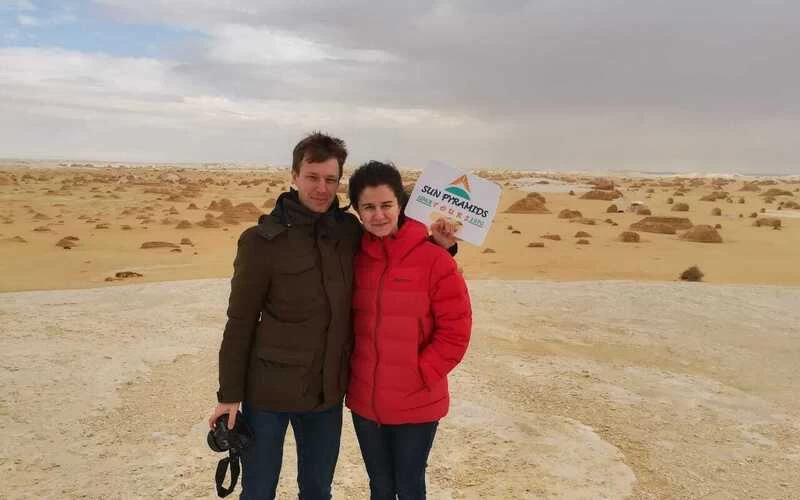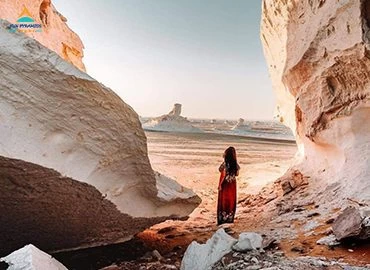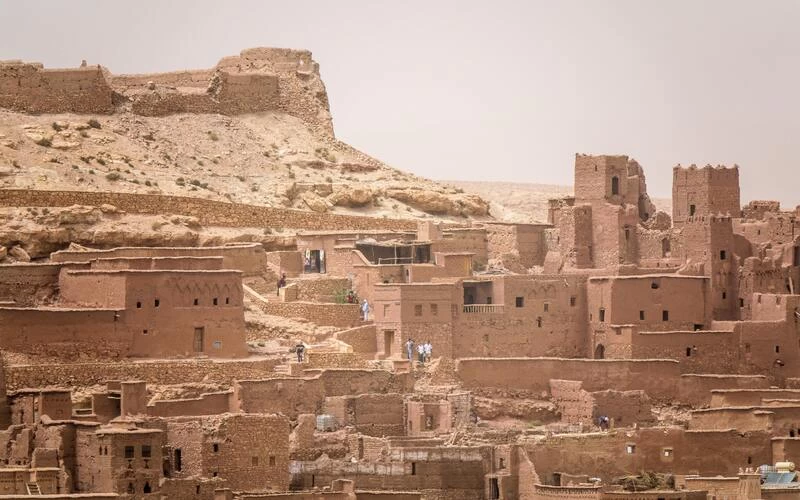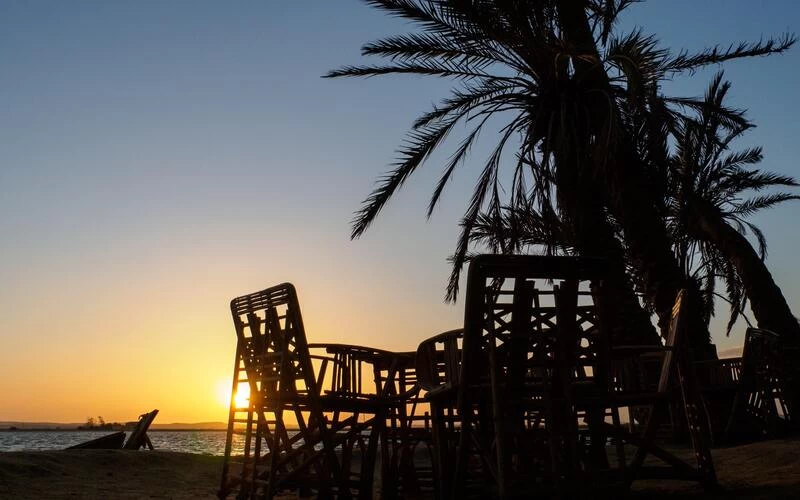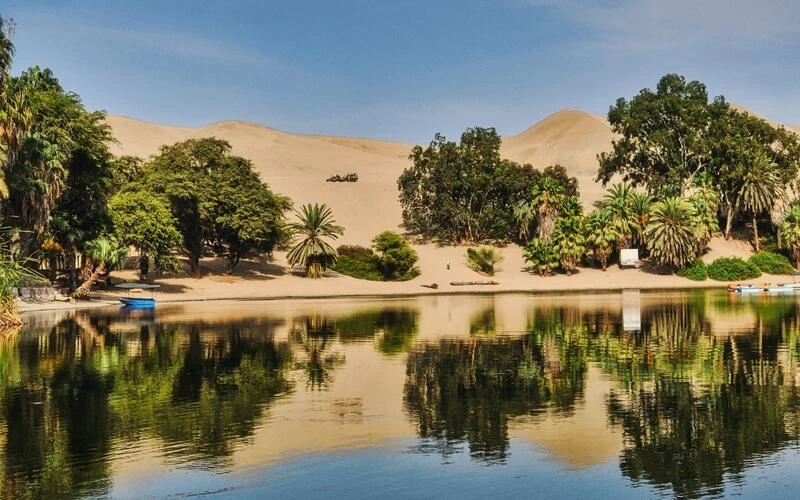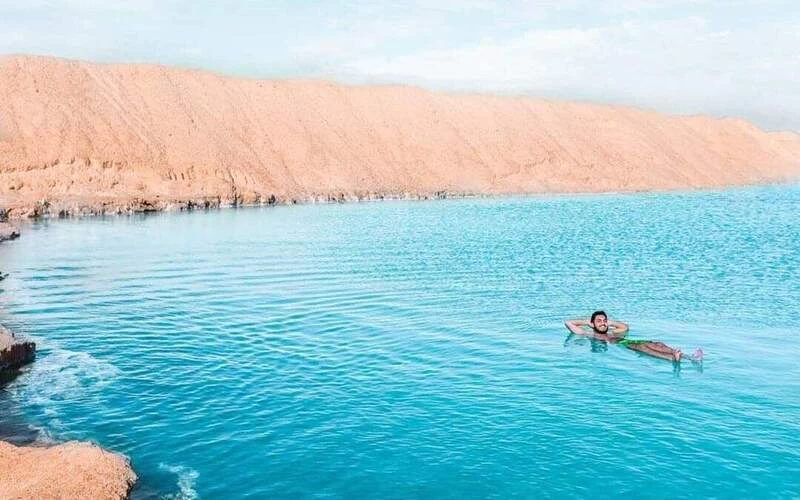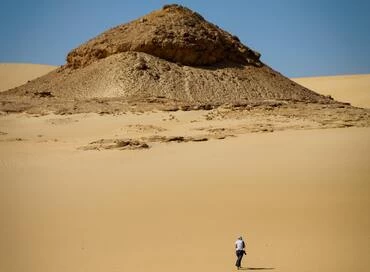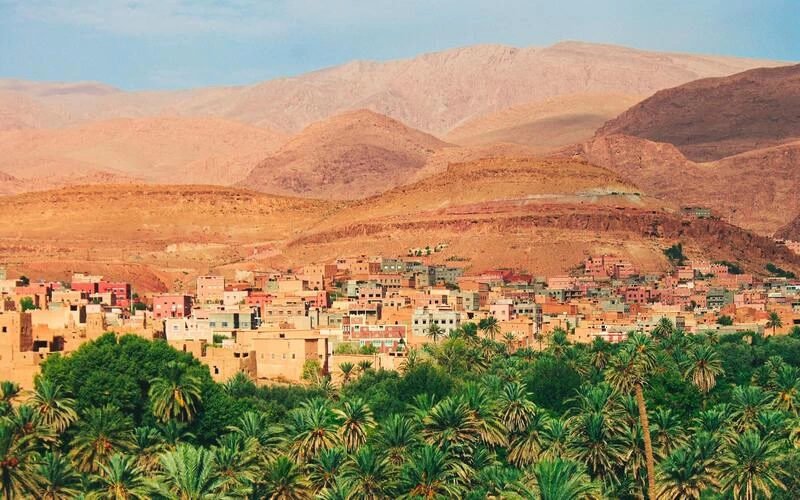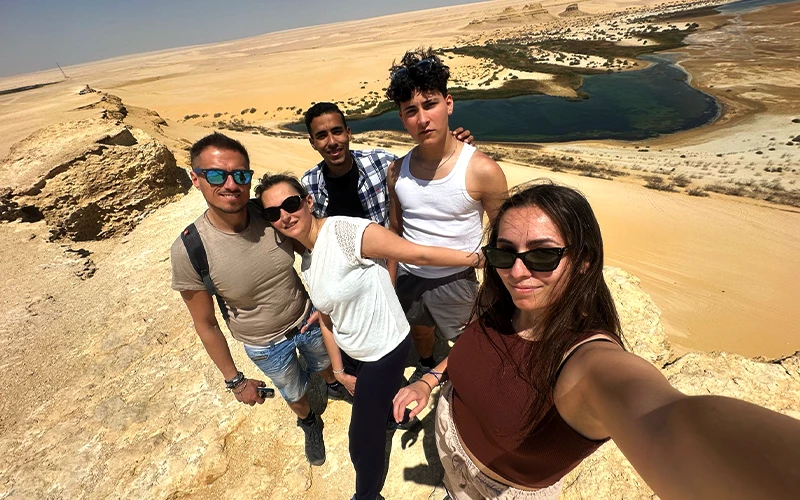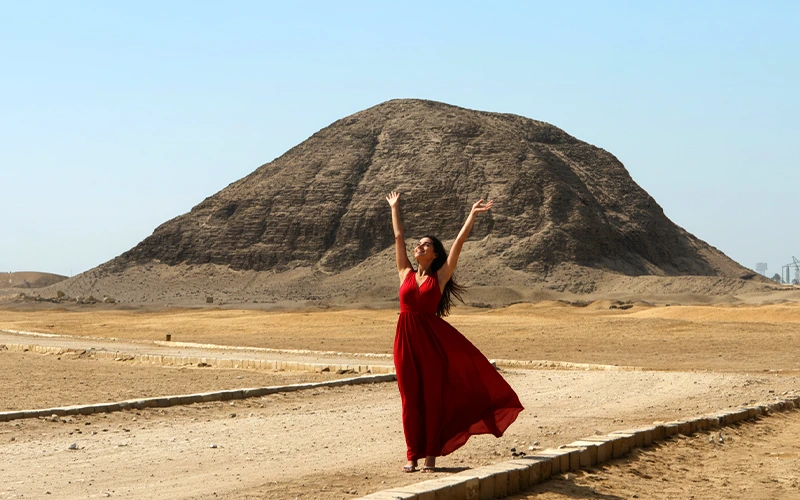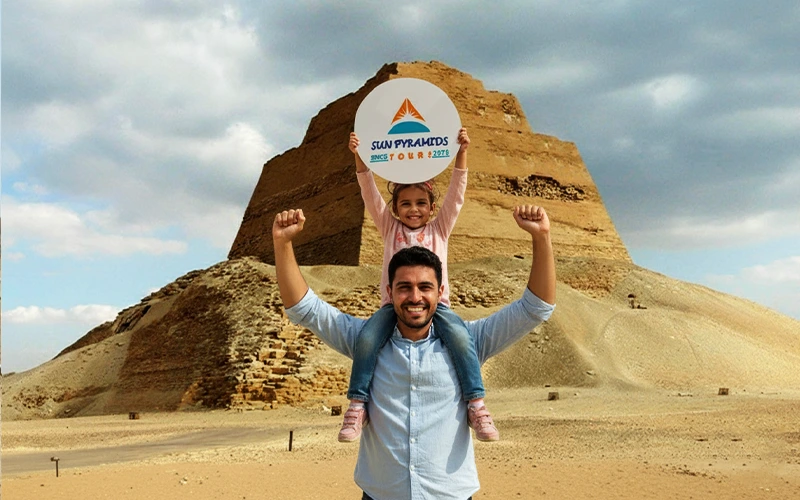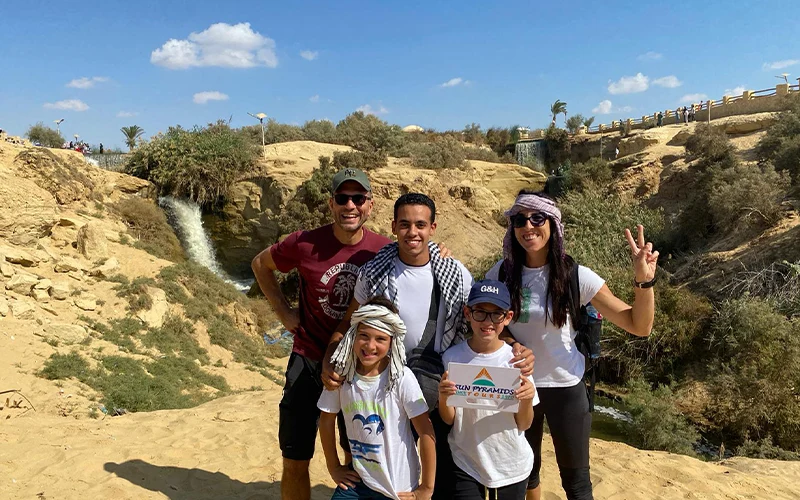Faiyum Oasis: Explore Egypt’s Hidden Desert Paradise
Table of Content
The History of Faiyum Oasis
The Faiyum Mummies and Tombs
Attractions and Things to Do in Fayum Oasis
Fayoum Oasis Hotels
Visit Fayoum Oasis With Sun Pyramids Tours
Faiyum Oasis: Explore Egypt’s Hidden Desert Paradise
The Faiyum Oasis is a depression or basin in the desert directly west of the Nile River, 62 miles south of Cairo, Egypt. The basin's area is between 1,270 km² and 1,700 km². Its floor comprises fields watered by a Nile channel, the Bahr Yussef, which drains into a desert hollow west of the Nile Valley. The Bahr Yussef veers west through a narrow neck of land north of Ihnasya, between El Lahun's and Gurob's archaeological sites near Hawara Pyramids.

The History of Faiyum Oasis
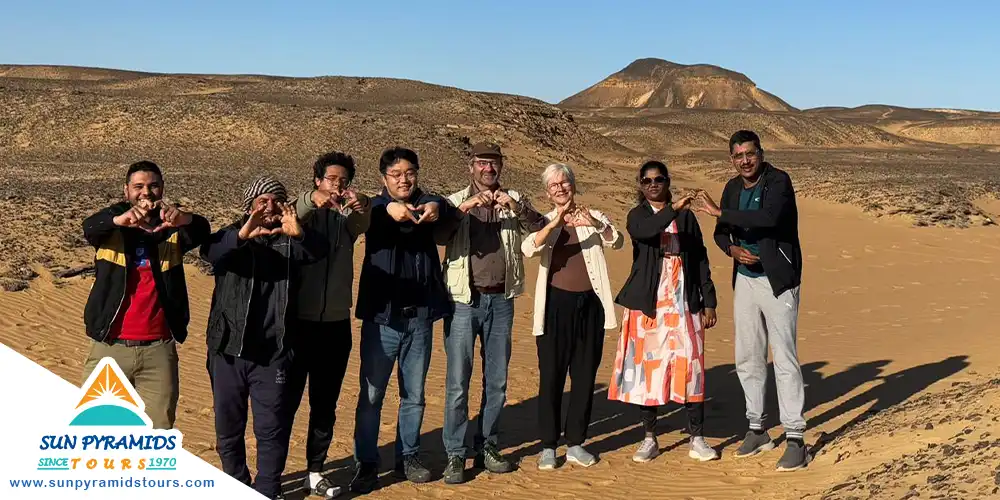
Faiyum City is rich in history and culture, dating back to ancient times. Its name has evolved over the centuries: it was known as Shedet in ancient Egypt, Koine Greek (Crocodile City) during Greek times, Arsinoe in Roman times, and Joseph's Canal in biblical times. The city is dotted with several pyramids from Egypt's middle kingdom (2040-1782 BC) at Tahun, List, and Hawara locations.
Ancient Times (2300 BC - Twelfth Dynasty)
In 2300 BC, evidence shows that the waterway from the Nile River to the natural lake was widened and deepened, creating the Bahr Yussef Canal. This canal served three purposes: controlling Nile floods, regulating water levels during dry seasons, and providing irrigation. The Twelfth Dynasty pharaohs transformed the natural lake of Faiyum into a vast water reservoir for surplus storage, giving it an artificial excavation appearance. The History of Faiyum Oasis notes that the lake was ultimately abandoned around 230 BC due to the dwindling size of the nearest Nile branch.
The Middle Kingdom and Ptolemaic Period
Faiyum, known to the ancient Egyptians as the twenty-first nome of Upper Egypt, Atef-Pehu ("Northern Sycamore"), had its capital at Sh-d-y-t (usually written as Shedyt). The Greeks called it Crocodilopolis, and Ptolemy II Philadelphus referred to it as Arsinoe. This region holds the earliest evidence of farming in Egypt and became a center of royal pyramid and tomb-building during the Twelfth Dynasty of the Middle Kingdom and again during the Ptolemaic Kingdom. During Roman rule, Faiyum became one of the breadbaskets of the Roman world. For the first three centuries AD, the people of Faiyum embalmed their dead and placed portrait paintings of the deceased over the mummy wrappings, preserved today as rich Fayum mummy portraits.
Late Periods (1st Millennium - Early 20th Century)
In the late 1st millennium, Faiyum's arable area shrank, leading to the abandonment of settlements around the basin edge. Some sites, like Karanis and those from the Byzantine and early Arab periods, have been well-preserved despite redevelopment.
Faiyum villages also yielded papyrus fragments containing literature and documents in Latin, Greek, and Egyptian scripts. During the Greek and Roman periods, "colonial-type" village names indicated extensive land cultivation.
By 1910, over 1,000 km² (400 mile²) of the Faiyum Oasis had been cultivated with crops like cereals and cotton. The completion of the Aswan Low Dam ensured a steady water supply, enabling the irrigation of previously untaxed and unirrigated lands. Faiyum became notable for its production of figs, grapes, olives, and rose oil, and the region even raised its own variety of sheep.

The Faiyum Mummies and Tombs
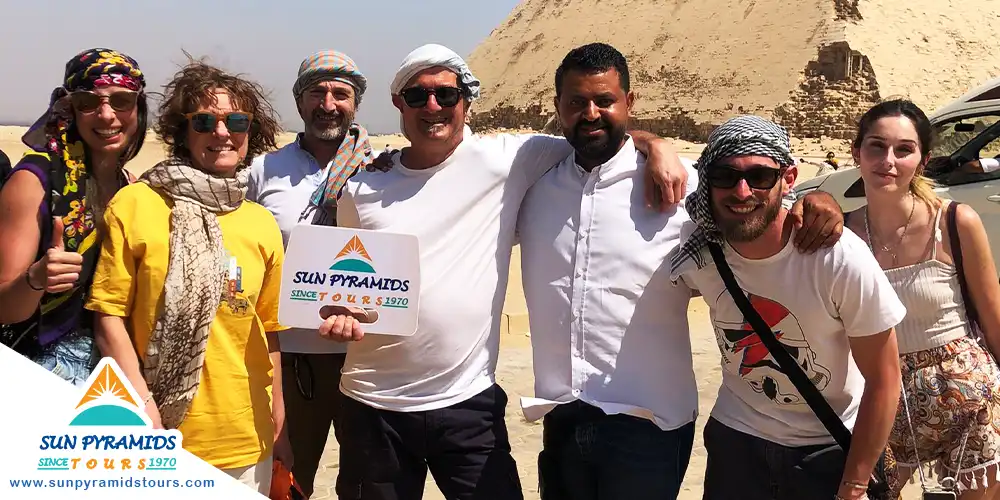
The Faiyum mummy portraits, originating from the time of Roman rule in Egypt, represent one of the largest surviving examples of the panel painting tradition of the classical world. They depict individuals, typically showing the head or head and upper chest, mounted into the bands of cloth wrapping mummified bodies. Two main techniques were used: encaustic (wax) paintings and tempera, with encaustic being of higher quality. Around 900 known portraits, mostly found in the necropolis of Faiyum, showcase bright and well-preserved colors, thanks to Egypt's hot, dry climate.
The Evolution of Burial Practices
The religious significance and associated grave rituals of mummy portraits remain unclear. Evidence suggests these practices developed from genuine Egyptian funerary rites adopted by a multicultural ruling class.
While the tradition of mummy portraits spanned regions from the Delta to Nubia, The Faiyum Mummies and tomb portraits were most prevalent in Faiyum (notably Hawara and Achmim) and Antinoopolis. Different burial forms coexisted at most sites, possibly influenced by financial means, status, and local customs of the deceased.
Portrait mummies were found in various grave types, including rock-cut tombs, freestanding grave complexes, and shallow pits. Notably, they were rarely accompanied by grave offerings, except for occasional pots or sprays of flowers.

Attractions and Things to Do in Fayum Oasis
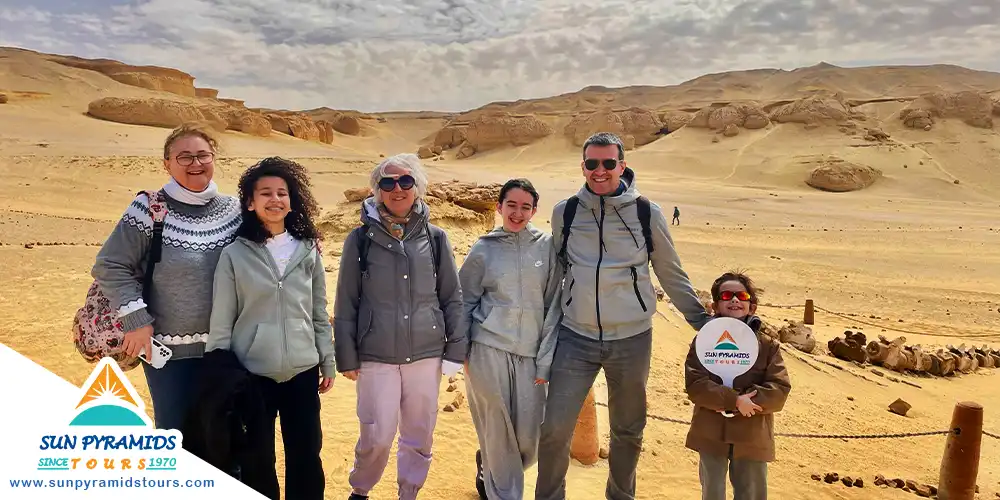
Birket Qarun (Lake Qarun): This ancient lake offers enthusiasts breathtaking vistas and a rich variety of bird species. Its calm waters and surrounding beauty make it a perfect spot for birdwatching and nature walks.
Tunisia Village: Famous for its pottery and artisanal crafts, this charming village offers picturesque views and a chance to learn from local craftsmen in their workshops. It's a blend of cultural and artistic experiences.
Wadi El Rayan Protected Area: This natural reserve is home to two lakes and majestic waterfalls. Ideal for picnics, desert safaris, and wildlife spotting, it provides a serene escape in nature.
Qasr Qarun: An ancient Ptolemaic temple dedicated to the crocodile god Sobek. This well-preserved archaeological site offers a glimpse into ancient Egyptians' rich history and religious practices.
Wadi Al-Hitan (Valley of the Whales) Protected Area: A UNESCO World Heritage site known for its well-preserved fossil remains of ancient whales. A must-visit for anyone interested in paleontology and natural history.
Magic Lake: This captivating lake in the middle of the desert changes color throughout the day due to the angle of the sunlight. It offers stunning views and is ideal for camping and photography.
Madinat Madi Archaeological Site: Once a thriving Middle Kingdom city, this site features ancient ruins and temples, giving visitors a peek into Egypt's historical and architectural heritage.
Birdwatching: Fayoum is a haven for bird watchers with its diverse bird species. Whether you're by Lake Qarun or in various protected reserves, the variety and volume of birdlife are captivating.
Waterwheels of Fayoum: Known for their continuous, soothing sound ("Sawaqi El-Heidar"), these historic waterwheels showcase the ingenious agricultural techniques of ancient Egypt. They are a symbol of Fayoum's rich heritage.
Fayoum Obelisk: This ancient obelisk stands as a testament to Fayoum's importance in Egyptian history. It's an impressive monument with hieroglyphs depicting the glory of the past.
Lahun Dam and Lahun Pyramid: Explore the ancient Lahun Dam and the Lahun Pyramid, both constructed during the Middle Kingdom. Both structures are testaments to the engineering prowess of ancient Egyptians.
Hawara Pyramid and Meidum Pyramid: These iconic pyramids offer fascinating glimpses into Egypt's pyramid-building evolution. Visit these sites to experience the grandeur and mystery of ancient Egyptian engineering.

Fayoum Oasis Hotels
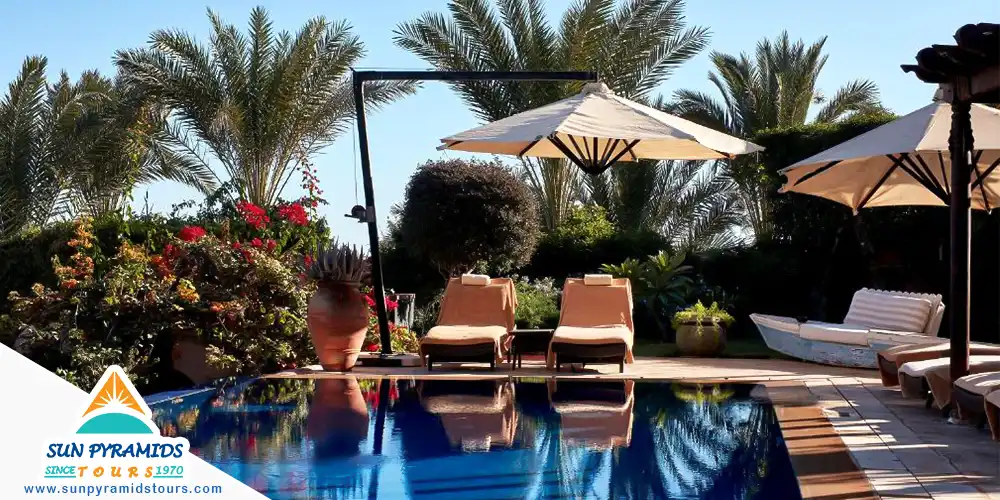
Exploring the shores of Lake Qarun and the Fayoum Oasis, you'll find a range of stunning hotels that cater to various preferences and occasions. Whether seeking a luxurious retreat, a romantic escape, or a cost-effective, delightful stay, these accommodations offer exceptional amenities and breathtaking views:
Lazib Inn Resort & Spa
A marvelous 5-star resort on Lake Qarun's shores offers stunning views of the surrounding desert. It has a variety of amenities, including a private beach, swimming pools, a spa, and several restaurants. It's perfect for a relaxing getaway.
Palm Shadow Resort
A beautiful 4-star resort located on Lake Qarun, known for its beautiful gardens and traditional Egyptian architecture. It has a swimming pool, a spa, and a restaurant serving Egyptian and international cuisine. It's an excellent option for families or couples seeking a romantic escape.
Byoum Lakeside Hotel
A budget 4-star hotel located on the shores of Lake Qarun, offering comfortable accommodations and excellent service. It provides a delightful experience for all guests.
Norias Hotel & Resort
A 3-star resort located in the heart of Fayoum Oasis, surrounded by lush greenery. It has a swimming pool, a restaurant, and a bar, making it a good option for travelers who want to be close to the action.
Helnan Auberge Hotel
It is a magnificent 3-star hotel, ideal for travelers who want to be close to the shops and restaurants. It features a swimming pool, restaurant, and bar.

Visit Fayoum Oasis With Sun Pyramids Tours
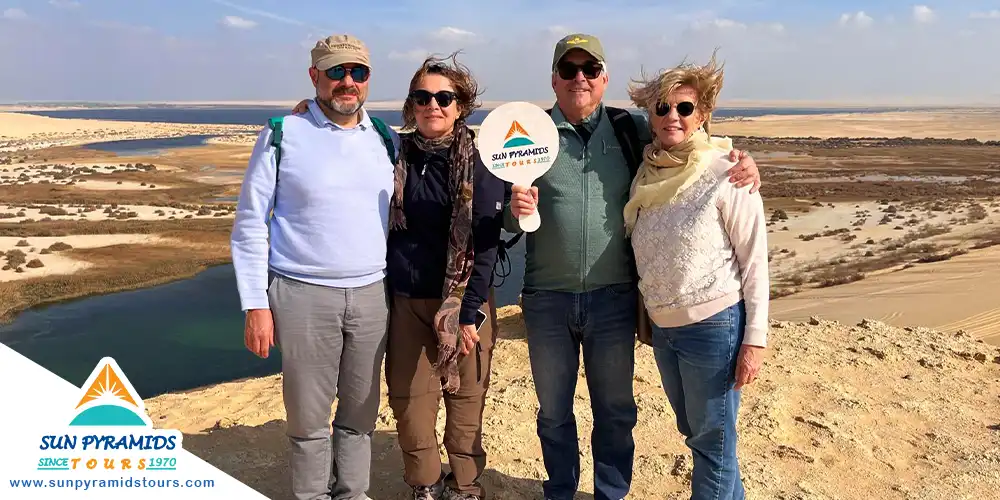
Ready to be enchanted by Egypt's hidden gems? The Fayoum Oasis perfectly blends relaxation, adventure, and cultural immersion. Whether marveling at ancient ruins and spectacular landscapes or indulging in the rare views of its hotels. Sun Pyramids Tours, your travel companion ready to craft a journey tailored just for you. So pack your bags and allow Sun Pyramids Tours to guide you through a remarkable adventure filled with memories to last a lifetime.

Why do I book with Sun Pyramids Tours?
Egypt warmly welcomes visitors with its majestic Nile River, desert landscapes, and the fertile Delta, along with its remarkable and awe-inspiring landmarks. With our Egypt tour packages, you’ll have the chance to uncover the most mesmerizing wonders of the land of the Pharaohs, including the iconic Giza Pyramids, the Great Sphinx, Abu Simbel, the Karnak temples, and so much more. The Nile River is also the perfect setting for one of our Nile cruises, where you can sail through history, admiring the magnificent monuments between Luxor and Aswan. The opportunity is right here for you—don’t miss out, book with us today!
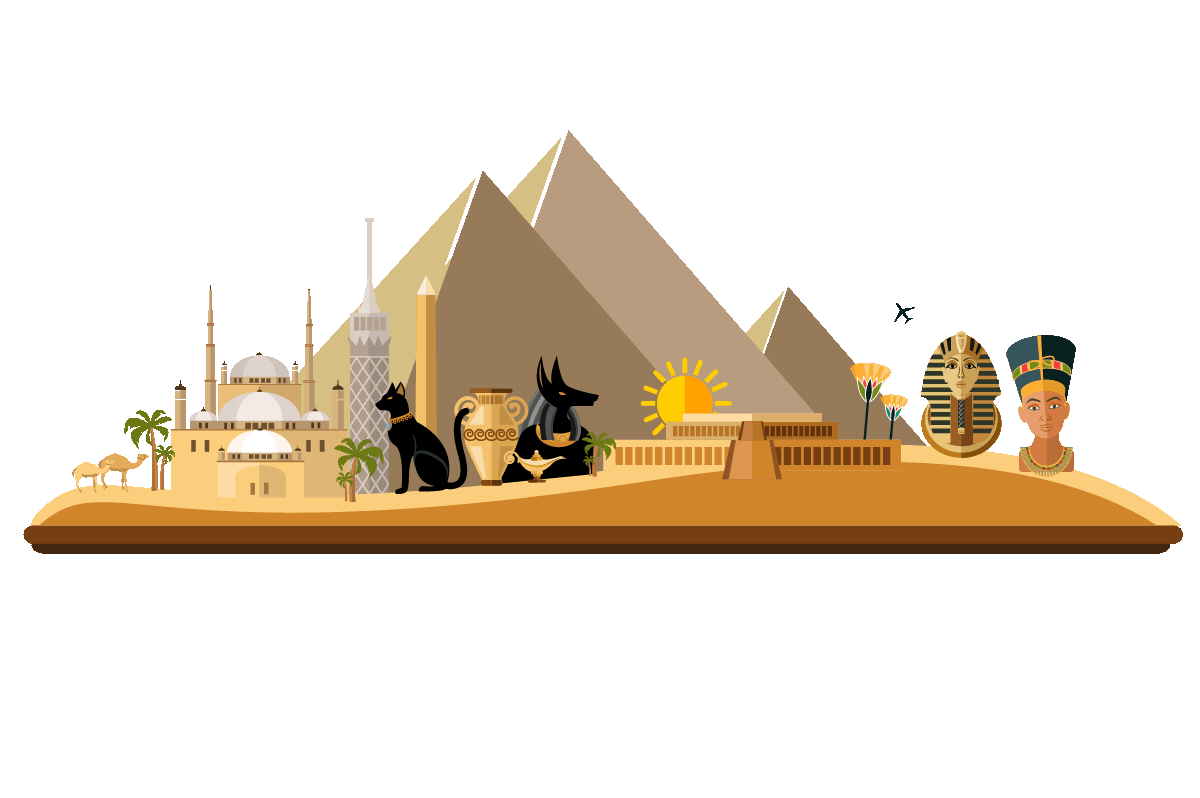
.DvizhAGb.gif)
Plan your next adventure now
Related Tours
Frequently Asked Questions
See more

There are no frequently asked questions :)
Related Blogs
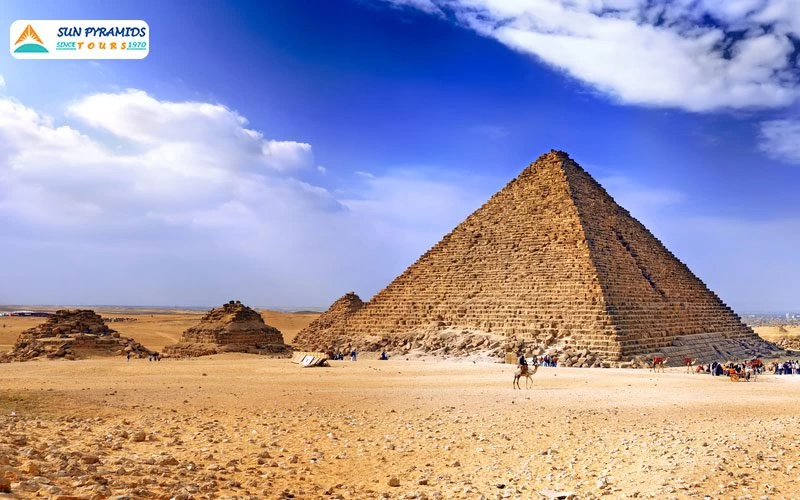
Plan A Trip to Egypt
+1 more
Ultimate Guide: How To Plan A Trip To Egypt
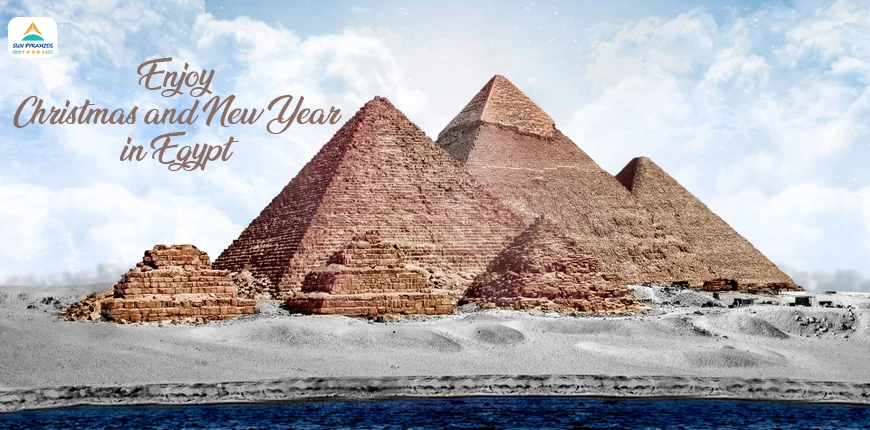
Christmas and New Year in Egypt
+1 more
Christmas and New Year in Egypt

Egypt Hidden Gems
+1 more
Egypt Hidden Gems
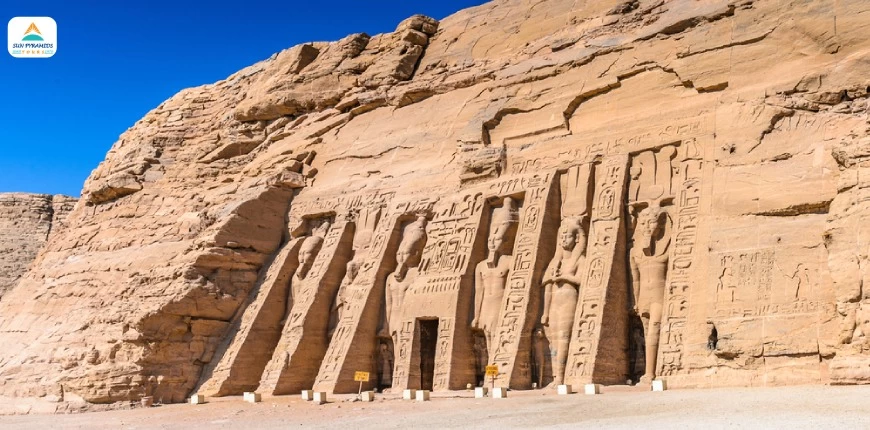
Abu Simbel Temple
+1 more
Abu Simbel Temple
Need help to Finding your Trip?
Offers
Make Trip
trips
Home
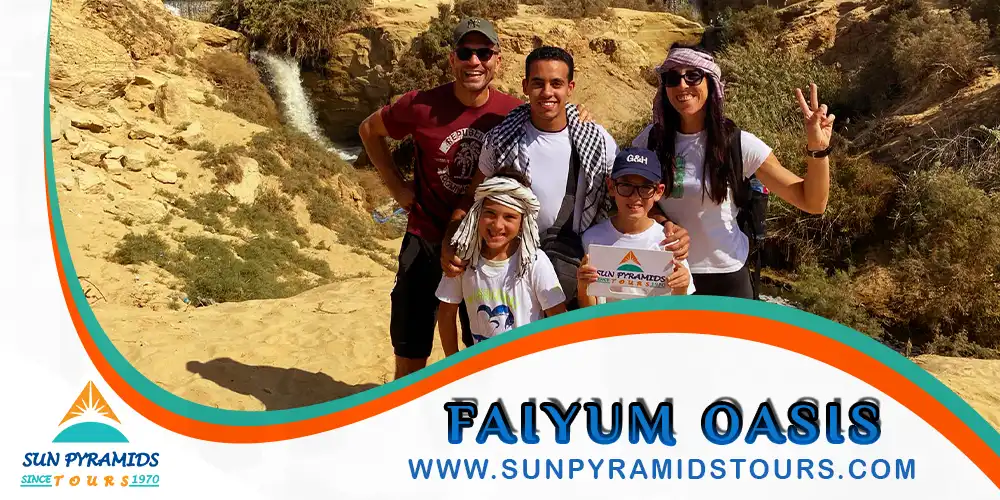
.webp)
.webp)

